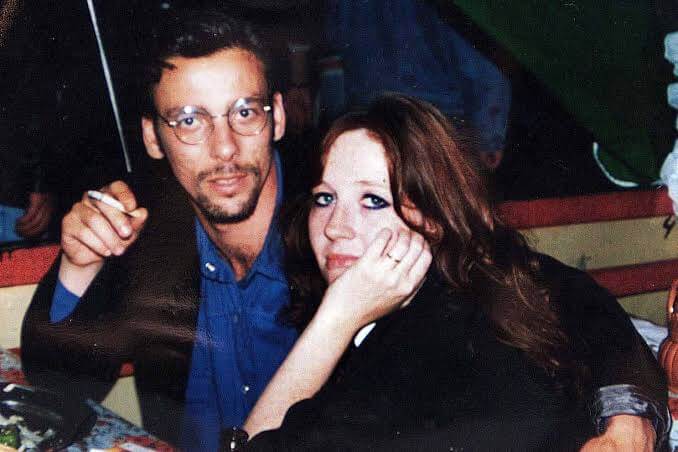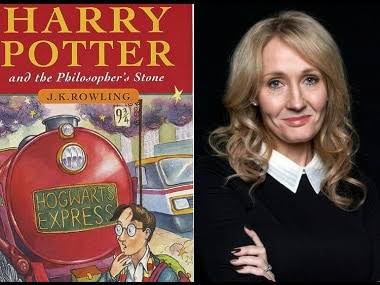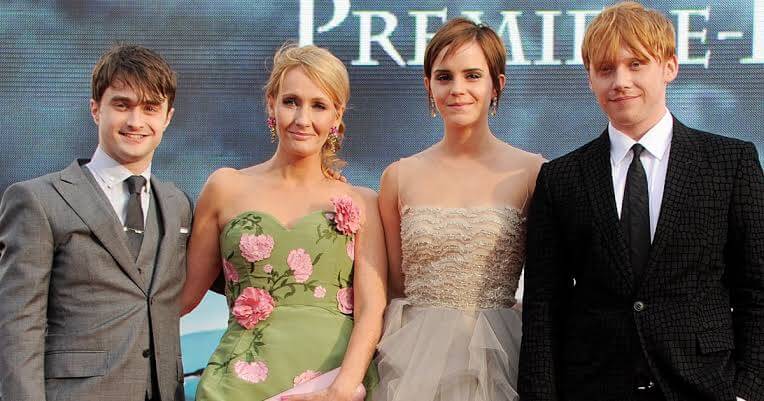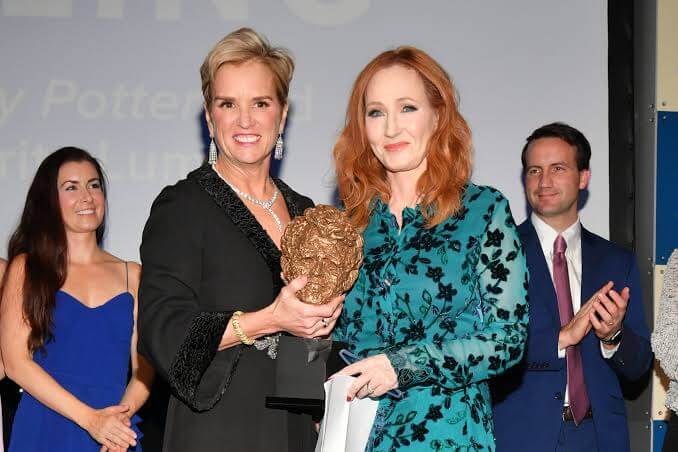J.K. Rowling
Joanne Rowling, also known as J.K. Rowling, was born on July 31, 1965. K. Rowling is a philanthropist and author from the United Kingdom. From 1997 to 2007, she wrote Harry Potter, a seven-volume children's fantasy series. The series has sold over 500 million copies worldwide, has been translated into at least 70 languages, and has inspired a global media franchise that includes films and video games. Her first novel for adults, The Casual Vacancy, was published in 2012. As Robert Galbraith, she writes the ongoing crime fiction series Cormoran Strike. Rowling, who was born in Yate, graduated from the University of Exeter with a degree in French in 1987 and began working as a bilingual secretary on the side. While waiting for a delayed train in 1990, she had the inspiration for the characters of Harry Potter; later that year, her mother died of multiple sclerosis. Rowling moved to Portugal seven years before the first Harry Potter novel, Harry Potter and the Philosopher's Stone (1997). She married, had a daughter, relocated to Scotland when her marriage failed, divorced, and earned a teaching certificate. She wrote while living on public assistance as a single parent, still reeling from her mother's death. By 2008, Forbes had named her the highest-paid author in the world. Rowling's Harry Potter series concluded with Harry Potter and the Deathly Hallows (2007). The novels follow a young boy named Harry Potter as he attends Hogwarts, a wizarding school, and battles Lord Voldemort. The central themes of the series are death and the conflict between good and evil. Bildungsroman (the coming-of-age genre), school stories, fairy tales, and Christian allegory are among its influences. The series reintroduced fantasy to the children's market, spawned a slew of imitators, and sparked an active fandom. The critical response has been more mixed. Many critics consider Rowling's writing to be conventional, while others consider her portrayal of gender and social division to be regressive. There were also religious discussions about Harry Potter. Rowling has received numerous awards for her work. She has been awarded the Order of the British Empire and the Order of the Companions of Honour for her contributions to literature and philanthropy. Harry Potter brought her wealth and fame, which she has used to further philanthropic and political causes. She co-founded the charity Lumos and established the Volant Charitable Trust in her mother's name. Rowling's charitable contributions are focused on medical causes and assisting at-risk women and children. She has donated to the British Labour Party and has spoken out against Scottish independence and Brexit. She has publicly expressed her views on transgender people and related civil rights since late 2019. LGBT rights organisations and some feminists have criticised these as transphobic, but they have received support from other feminists and individuals. Although she writes under the pen name J. K. Rowling, her given name before her remarriage was Joanne Rowling, or Jo. She was born with no middle name. Bloomsbury Publishing staff requested that she use two initials rather than her full name, assuming that young boys, their target audience, would not want to read a book written by a woman. She chose K (for Kathleen) as her pen name's second initial after her paternal grandmother and because two consecutive letters are easier to pronounce. Following her remarriage in 2001, she has occasionally conducted personal business under the name Joanne Murray. FamilyJoanne Rowling was born on July 31, 1965, in Yate, Gloucestershire, at Cottage Hospital. Her parents, Anne and Peter ("Pete") James Rowling, met on a train the previous year on their way from King's Cross station in London to their naval postings in Arbroath, Scotland. Pete was in the Royal Navy, while Anne was with the Wrens. They were raised in the middle class; Pete was the son of a machine-tool setter who later opened a grocery store. They left the navy to look for a country home to raise their baby, and married on March 14, 1965, when both were 19 years old. Pete Rowling began working as an assembly-line production worker at the Bristol Siddeley factory after the Rowlings moved to Yate. The company became part of Rolls-Royce, and he worked his way into management as a chartered engineer. Anne later worked as a science technician. Neither Anne nor Pete attended university. Joanne is two years older than her sister, Dianne. When Joanne was four, the family moved to Winterbourne, Gloucestershire. She began at St Michael's Church of England Primary School in Winterbourne when she was five. The Rowlings lived near a family called Potter - a name Joanne always liked. Anne loved to read and their homes were filled with books. Pete read The Wind in the Willows to his daughters, while Anne introduced them to the animals in Richard Scarry's books. Joanne's first attempt at writing, a story called "Rabbit" composed when she was six, was inspired by Scarry's creatures. Rowling's family bought the historic Church Cottage in Tutshill when she was about nine years old. Rowling began attending the nearby Church of England School in 1974. Sylvia Morgan, according to her biographer Sean Smith, was a "battleaxe" who "struck fear into the hearts of the children"; she seated Rowling in "dunces' row" after she failed an arithmetic test. Rowling joined a Brownies pack in 1975. Its special events and parties, as well as the pack groups, created a magical world away from Morgan. She wrote "The Seven Cursed Diamonds" when she was eleven or twelve years old. During this time, she described herself as "the epitome of a bookish child living in a world of complete daydreams." CareerRowling became more interested in her schoolwork as she grew up in a small town with family pressures. Her first secondary school English teacher, Steve Eddy, recalls her as "not exceptional" but "one of a group of girls who were bright and quite good at English." Rowling completed A-levels in English, French, and German, earning two As and a B, and was named Wyedean's head girl. In 1982, she applied to Oxford University but was turned down. Her rejection is attributed to privilege, as she attended a public rather than a private school. Rowling had always wanted to be a writer, but she chose to study French and classics at the University of Exeter for practical reasons, influenced by her parents, who believed that evidence of bilingualism would improve her job prospects. She later stated that while Exeter was not what she expected ("to be among lots of similar people - thinking radical thoughts"), she enjoyed herself after meeting more people like her. She was a typical Exeter student, according to biographers, who prioritised her social life over her studies and lacked ambition and enthusiasm. Rowling remembers doing little work at university because she preferred to read Dickens and Tolkien. She graduated from Exeter with a BA in French in 1987, after a year of study in Paris. Amnesty International hired her to document human rights issues in French-speaking Africa while she was working temp jobs in London. While working as a temp, she began writing adult novels, which were never published. She planned to move to Manchester with her boyfriend in 1990, and she frequently took long train rides to see him. In mid-1990, she was on a four-hour-late train from Manchester to London when the characters Harry Potter, Ron Weasley, and Hermione Granger came to mind. Without a pen or paper, she was able to fully explore the characters and their story in her imagination before arriving at her flat and starting to write. On December 30, 1990, her mother died of multiple sclerosis. She was writing Harry Potter at the time and hadn't told her mother about it. Rowling's writing was heavily influenced by her mother's death. She later revealed that the Mirror of Erised is about her mother's death, and she observed a "evident parallelism" between Harry confronting his own mortality and her life. Her grief over her mother's death was exacerbated when some of her mother's personal effects were stolen. Rowling described herself as being in a state of "fight or flight" following the end of her relationship with her boyfriend and "being made redundant from an office job in Manchester." In November 1991, she moved to Porto, Portugal, after seeing an advertisement in The Guardian, to teach English as a foreign language at night and write during the day. Personal Life
Five months after moving to Porto, Rowling met the Portuguese television journalist Jorge Arantes in a bar and discovered that they both loved Jane Austen. They were planning a trip to London to introduce Arantes to Rowling's family when she miscarried in mid-1992. They had a troubled relationship, but they married on October 16, 1992. Jessica Isabel Rowling Arantes was born on July 27, 1993, in Portugal. Rowling had completed the first three chapters of Harry Potter and the Philosopher's Stone - almost exactly as they were eventually published - and had drafted the rest of the novel by this point. During her marriage, Rowling was subjected to domestic violence. Arantes admitted to slapping her and did not regret it in June 2020. Rowling called the marriage "short and disastrous." Rowling and Arantes split up on November 17, 1993, after Arantes threw her out of the house; she returned with the police to find Jessica and went into hiding for two weeks before leaving Portugal. Rowling moved to Edinburgh, Scotland, with her daughter in late 1993, with a draught of Harry Potter in her suitcase, intending to stay with her sister until Christmas. Harry Potter

In June 1995, Rowling finished Harry Potter and the Philosopher's Stone. An illustration of Harry by a fireplace with a lightning-shaped scar on his forehead was included in the first draught. Christopher Little Literary Agency agreed to represent Rowling after receiving an enthusiastic report from an early reader. Her manuscript was sent to twelve publishers, all of whom turned it down. After Nigel Newton, the head of Bloomsbury at the time, saw his eight-year-old daughter finish one chapter and want to keep reading, Barry Cunningham, who ran the children's literature department, bought it. Bloomsbury released Philosopher's Stone on June 26, 1997, with a print run of 500 copies. Rowling had received £2,800 prior to the publication of Chamber of Secrets. Rowling learned that the US rights would be auctioned off at the Bologna Children's Book Fair. Scholastic Corporation purchased the rights for $105,000, much to her surprise and delight. She used the proceeds from the sale to purchase a flat in Edinburgh. Scholastic imprint head Arthur A. Levine pushed for a name change. He wanted Harry Potter and the School of Magic; Rowling suggested Harry Potter and the Sorcerer's Stone as a compromise. In the United States, Sorcerer's Stone was released in September 1998. It did not receive many reviews, but those that did were generally positive. Between 1998 and 2000, the following three books in the series were released in quick succession: Harry Potter and the Chamber of Secrets (1998), Harry Potter and the Prisoner of Azkaban (1999), and Harry Potter and the Goblet of Fire (2000), all of which sold millions of copies. When Harry Potter and the Order of the Phoenix didn't come out by 2002, rumours spread that Rowling was suffering from writer's block. It was released in June 2003 and sold millions of copies on its first day. Harry Potter and the Half-Blood Prince was released two years later in July, selling millions of copies on the first day. Harry Potter and the Deathly Hallows, published in July 2007, marked the end of the series. Warner Bros reportedly paid $1 million for the film rights to the first two Harry Potter novels in 1999. Rowling accepted the offer on the condition that the studio only make Harry Potter films based on her books, while retaining final script approval and some control over merchandising. In November 2001, Harry Potter and the Philosopher's Stone, an adaptation of the first Harry Potter book, was released. With Rowling's assistance, Steve Kloves wrote the screenplays for all but the fifth film, ensuring that his scripts adhered to the plots of the novels. The film series concluded with Harry Potter and the Deathly Hallows, which was adapted in two parts; part one was released on 19 November 2010, and part two followed on 15 July 2011. Pottermore, a website containing information and stories about characters from the Harry Potter universe, debuted in 2011. Pottermore, when it first launched, was based on the Harry Potter novels, tracing the series' story in an interactive format. Its brand was linked to Rowling: in a video, she introduced the site as a shared media environment to which she and Harry Potter fans would contribute. In 2015, the site was heavily revamped to resemble a Harry Potter encyclopaedia. Aside from encyclopaedia content, Pottermore after 2015 included promotions for Warner Bros. films such as Fantastic Beasts and Where to Find Them. Harry Potter and the Cursed Child debuted in the West End in May 2016 and on Broadway in July of that year. Rowling confirmed at the film's London premiere that she would not write any more Harry Potter books. Rowling worked with writer Jack Thorne and director John Tiffany on the film. The script for Cursed Child was published as a book in July 2016. The plot revolves around Harry's son Albus and Draco Malfoy's son Scorpius Malfoy's friendship at Hogwarts. Religious ResponsesThere have been attempts to outlaw Harry Potter all over the world, particularly in the United States and the Bible Belt. In the first three years of publication, the series topped the American Library Association's list of most challenged books. In the years since, parents in several US cities have protested against it being taught in schools. Some Christian critics, particularly Evangelical Christians, have claimed that the novels promote witchcraft and endanger children; similar criticism has been levelled against the film adaptations. Criticism has taken two forms: allegations that Harry Potter is a pagan text, and claims that it encourages children to oppose authority, based primarily on Harry's rejection of his adoptive parents, the Dursleys. According to author and scholar Amanda Cockrell, Harry Potter's popularity, as well as Christian fundamentalists' recent preoccupation with fantasy and the occult, explains why the series received such strong opposition. Shia and Sunni's Muslim groups also claimed that the series contained satanic undertones, which were banned in private schools in the United Arab Emirates. There is also a vocal religious fan base who believe that Harry Potter espouses Christian values and that the Bible does not forbid the types of magic described in the series. According to Christian interpretations of the series, it embraces ideals of friendship, loyalty, courage, love, and the temptation to power. Rowling stated after the final volume was published that she intentionally incorporated Christian themes, particularly the idea that love has power over death. According to Farmer, believing that Harry Potter promotes witchcraft is a grave misinterpretation. According to Em McAvan, evangelical objections to Harry Potter are superficial, based on the presence of magic in the books: they do not attempt to understand the series' moral messages. Praises and Awards
Rowling's Harry Potter series has received recognition for general literature, children's literature, and speculative fiction. It has won numerous British Book Awards, including Children's Book of the Year for the first two volumes, Philosopher's Stone and Chamber of Secrets. Prisoner of Azkaban, the third novel, was nominated for an adult award, the Whitbread Book of the Year, where it competed against Nobel laureate Seamus Heaney's translation of Beowulf. The awarding body instead gave Rowling the children's prize, which some scholars felt demonstrated a literary bias against children's books. She received the Hugo Award from the World Science Fiction Convention for her fourth book, Goblet of Fire, and the Book of the Year award from the British Book Awards. Rowling was named an Officer of the Order of the British Empire (OBE) in the 2000 Birthday Honours for her contributions to children's literature, and three years later, she was awarded Spain's Prince of Asturias Award for Concord. She received the Outstanding Achievement award at the 2008 British Book Awards following the conclusion of the Harry Potter series. The French president Nicolas Sarkozy made her a Chevalier de la Légion d'Honneur the following year, and leading magazine editors named her the "Most Influential Woman in the UK" in 2010. In 2017, she was awarded the Order of the Companions of Honour (CH) for her contributions to literature and philanthropy. Rowling has received honorary degrees from a number of academic institutions, including her alma mater, the University of Exeter, and Harvard University, where she spoke at the 2008 commencement ceremony. She is a Royal Society of Literature (FRSL), Royal Society of Edinburgh (HonFRSE), and Royal College of Physicians of Edinburgh (RCPE) fellow (FRCPE). Rowling and the cast and crew of the Harry Potter films shared the British Academy Film Award (BAFTA) for Outstanding British Contribution to Cinema in 2011. Her other honors include the 2017 Laurence Olivier Award for Best New Play for Harry Potter and the Cursed Child, as well as the Crime and Thriller prize at the 2021 British Book Awards for the fifth volume in her Cormoran Strike series.
Next TopicJane Austen
|
 For Videos Join Our Youtube Channel: Join Now
For Videos Join Our Youtube Channel: Join Now
Feedback
- Send your Feedback to [email protected]
Help Others, Please Share









